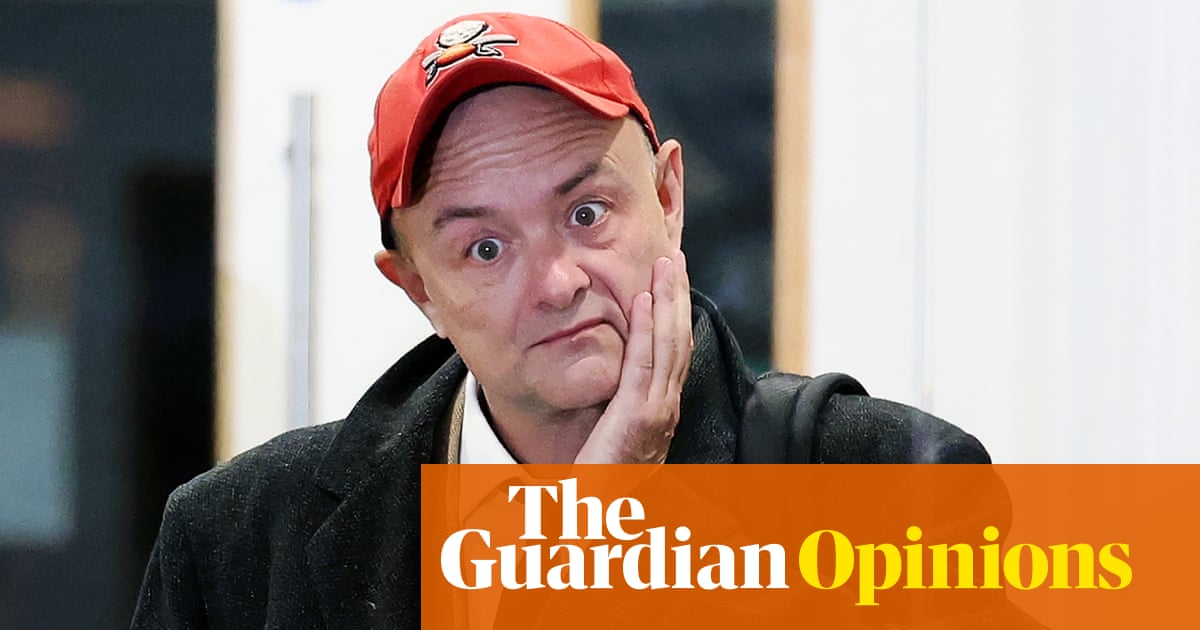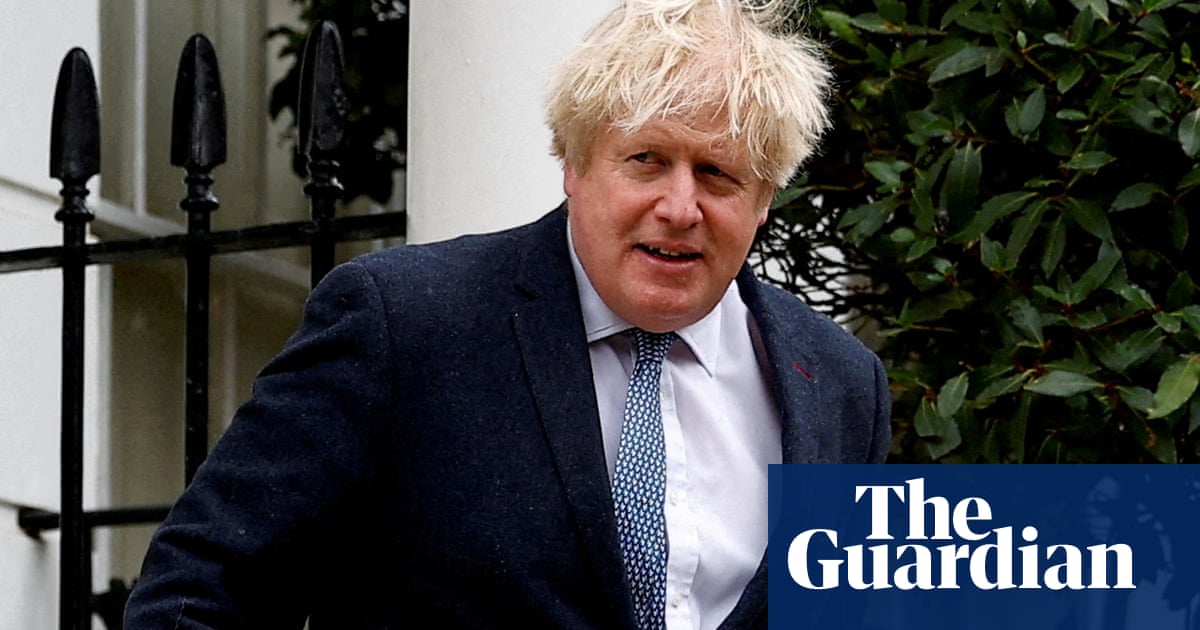
here are many reasons, some of them good and more of them bad, why Sir Mark Sedwill is quitting as Britain’s senior civil servant. Together they tell us a lot of important things about Boris Johnson’s government. Perhaps Sedwill himself will cast more light on his own exit at a Commons committee hearing next week. But the strange thing is that what looks to me like the principal reason for his departure has barely been mentioned at all, even though it is standing there in plain sight.
It was never a smart idea for Sedwill to combine the roles of cabinet secretary, head of the civil service and national security adviser. These should be three separate jobs. Sedwill only had them all because, as a former minister put it to me this week, he was “one of the only civil servants to get on with Theresa”. May brought Sedwill from the Home Office to be national security adviser in 2017, which he was good at, and then made him cabinet secretary a year later, where he struggled. He would have been overloaded even in quiet times. But amid Brexit and Covid-19, the burden is excessive, and there is a good organisational case for breaking the job up.
Johnson’s No 10 is also a mess. This repeatedly happens at the centre of government, where roles are insufficiently delineated and coordinated, and where aides compete for the prime minister’s ear. Johnson’s Downing Street is no exception, and there is a case for a shake-up. Eddie Lister, nominally the prime minister’s chief strategic adviser, is a case in point. It isn’t clear where his role stops and that of Dominic Cummings, officially chief adviser, starts. Even Conservatives who detest Cummings think Lister, who worked for Johnson when he was London mayor, is out of his depth and spends too much time on political firefighting.
Sedwill has also been ousted because Johnson prefers lieutenants who are indebted to him, not inherited from others. He wants loyalty to him, not the system. Johnson has a lot of form on this. Within months of becoming mayor in 2008 he forced out Ian Blair, the capital’s best police chief until Cressida Dick, for no better reason than to show that he could. Last year he expelled 21 Conservative MPs who had crossed him on Brexit. In the past month he has pushed out Britain’s senior diplomat, Simon McDonald. Now he has got rid of Sedwill. It’s what Johnson does.
But purges are also a Cummings signature. Axing the 21 MPs was his work. So was the departure of Sajid Javid from the Treasury in February and the earlier dismissal of Javid’s adviser Sonia Khan. Days before the Sedwill announcement, Cummings briefed special advisers that “a hard rain is coming” to Whitehall. Last Saturday, Michael Gove, soft cop to Cummings’s hard cop, gave a lecture at the impeccably establishment Ditchley Park in which he signalled what was to happen. In the lecture - which began with a quotation from the Italian Marxist Antonio Gramsci and continued with paeans of praise for Franklin Roosevelt - Gove bemoaned “systemic problems” in the civil service and called for “big risks and radical experiment” to reform them. The lecture read like a prime ministerial job application.
Several ex-ministers say they see Sedwill’s departure in this larger, culture-war context. Firing Sedwill, one says, is the start of “a new Dom battle, this time against Whitehall.” Another told me that Cummings, whom David Cameron once called a career psychopath, is less interested in civil service reform than he is in going to war with Whitehall. And in so doing, he will probably create a car crash for himself. A former adviser who supports Cummings’s wish to see more direct appointments into the civil service says making David Frost the new national security adviser with a seat in the Lords gives Britain the look of a banana republic.
It’s all very well to talk about impending culture wars. But it gets too far ahead, too soon, of where the government is right now: still deep in the midst of the most serious domestic emergency of the postwar era. It’s right to say that the Johnson-Cummings government is trying to relaunch itself as the Brexit-and-building government that it wanted to be when it was elected last year. That’s what Johnson and Cummings want the press and the public to think. They are at their most effective when spinning seductive promises about the future, promising billions of pounds here and infrastructural investment there, conjuring up world-beating wheezes and deals in the wake of Brexit.
But Covid-19 absolutely has not gone away. Far from it, in Britain or anywhere else. Look at the public health disaster in the United States. Leicester is the latest domestic reminder, not least because the new lockdown there raises another serious dispute – on which Keir Starmer focused at prime minister’s questions – about the adequacy of the government’s responses. Saturday’s potentially catastrophic reopening of pubs threatens to be another. The premature encouragement of foreign holidays this summer before the pandemic has been beaten could be a third. Looming over everything the government does are the twin threats of a widespread renewal of the pandemic and a rise in mass unemployment at a scale on which no one aged under 50 has any memory.
Johnson and Cummings certainly want to reinvent this as a post-coronavirus government. But it isn’t. It can’t be, however much ministers pretend. This is where the really ruthless politics of the Sedwill affair come in. Johnson and Cummings know that, probably sometime in the next few months, there will have to be some kind of public stocktaking about Britain’s response to Covid-19. Whether it is in the form of a full public inquiry is not yet clear. All Johnson said in Dudley on Tuesday was that those who had lost someone to coronavirus are owed “that discussion” and that “there must be time to learn the lessons”. In whatever form, it is a potent threat to the government.
Politically, this means someone else is going to get the blame. As their careers shamelessly show, Johnson and Cummings don’t do blame. “It’s always someone else’s fault,” another ex-minister told me this week. “Making sure the buck doesn’t stop here is the most important part of their strategy.” A Daily Telegraph story on Wednesday suggests that Public Health England is being softened up as one Covid-19 scapegoat. Many have long suspected the health secretary, Matt Hancock, is being set up as another. Sedwill will surely now be a natural third. There are many reasons for his departure. More than anything, though, it is part of a determined effort to make him, rather than the prime minister or his chief adviser, into the Downing Street fall guy for Britain’s Covid-19 debacle.
• Martin Kettle is a Guardian columnist












